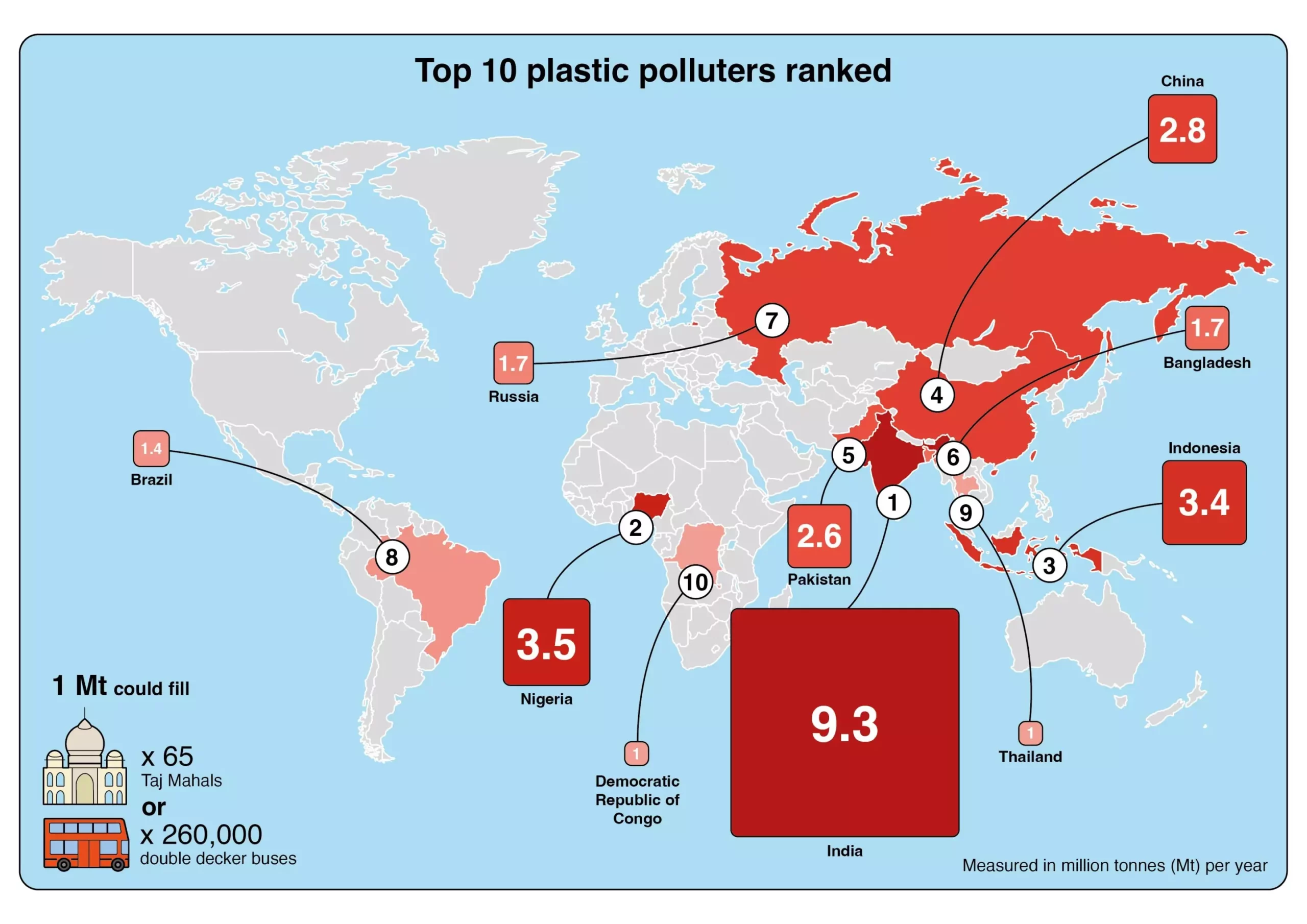The recent study conducted by researchers at the University of Leeds has unveiled a staggering reality regarding plastic pollution worldwide. Utilizing advanced artificial intelligence models to analyze waste management practices across more than 50,000 municipalities, the research presents a comprehensive portrait of the global state of plastic waste. In 2020, an estimated 52 million metric tons of plastic products infiltrated the environment—an amount so vast that, if laid end-to-end, it could circle the globe more than 1,500 times.
This study embarks on a critical journey into the heart of a crisis that many have chosen to overlook. By revealing that over two-thirds of global plastic pollution stems from uncollected waste, it highlights an urgent need for improved waste management systems, especially in underprivileged regions. Currently, nearly 1.2 billion people—accounting for roughly 15% of the global population—are deprived of basic waste collection services. This vulnerability forces individuals into desperate measures, leading to open dumping and incineration of plastic waste, which exacerbates the pollution crisis.
One of the most alarming revelations from the research is that about 30 million metric tons of plastics were burned in open environments, uncontrolled and rampant, in 2020 alone. Open burning of plastic is not just an environmental concern; it poses significant health risks that are only beginning to be understood. Researchers have linked exposure to the toxins released during burning to severe health repercussions, including neurodevelopmental issues and birth defects.
The overwhelming silence surrounding the consequences of burning plastic has perpetuated a cycle of neglect. As Dr. Costas Velis—who spearheaded the research—emphasizes, it is imperative to shift our focus more vigorously towards addressing the dual problems of open burning and uncollected waste. By turning a blind eye, we are allowing vulnerable communities to bear the brunt of this ongoing crisis without recourse or support.
The research also challenges previous assumptions regarding the leading contributors to plastic pollution. Contrary to earlier beliefs that centered on China, this study identifies India as the largest issuer of plastic waste globally, followed by Nigeria and Indonesia. This shift in understanding emphasizes the need for nuanced approaches to waste management that tailor solutions to specific regional contexts.
India, with its massive population estimated at 1.4 billion, presents a clear example of the daunting task ahead in waste management. Despite moments of policy progress, substantial gaps remain in collection services, allowing pollution to proliferate. Interestingly, a noteworthy situation arises when comparing the plastic waste dynamics of Global North versus Global South nations. Countries in the Global North enjoy robust waste management systems, and their primary issue is littering. In stark contrast, nations in the Global South grapple with dire limitations in their waste management infrastructure, amplifying the environmental burden.
The study conducted by the Leeds researchers is not only a wake-up call but also a crucial first step in gathering the necessary baseline data to guide future policy decisions. The inventory serves as a vital tool for creating informed strategies aimed at establishing effective waste management practices. Policymakers are urged to develop innovative solutions capable of addressing the root causes of plastic pollution while prioritizing resource recovery and transitioning toward a circular economy.
The urgent need for a globally coordinated response is echoed by experts who advocate for a legally binding treaty focused on plastic pollution. Dr. Velis underscores that this issue is not merely environmental; it is fundamentally a public health crisis demanding immediate attention. With predictions indicating that areas like Sub-Saharan Africa could emerge as leading contributors to plastic waste in the coming years, the implementation of effective waste management policies is more crucial than ever.
As we absorb the implications of this research, we are reminded of the critical nature of tackling plastic pollution at its source. Access to waste collection must be regarded as a basic human right; after all, the wellbeing of millions hangs in the balance. Continuous education and awareness initiatives can foster community engagement while driving resources toward effective waste management systems worldwide.
In summation, the study conducted by Leeds researchers drops a heavy yet illuminating spotlight on an almost invisible but monumental crisis. As we move forward, we must re-evaluate our policies and behaviors towards plastic consumption and waste management, putting humanity’s health and the environment at the forefront of our global agenda. By addressing the pervasive issue of plastic pollution head-on, we can begin the process of healing our planet and safeguarding the future.


Leave a Reply